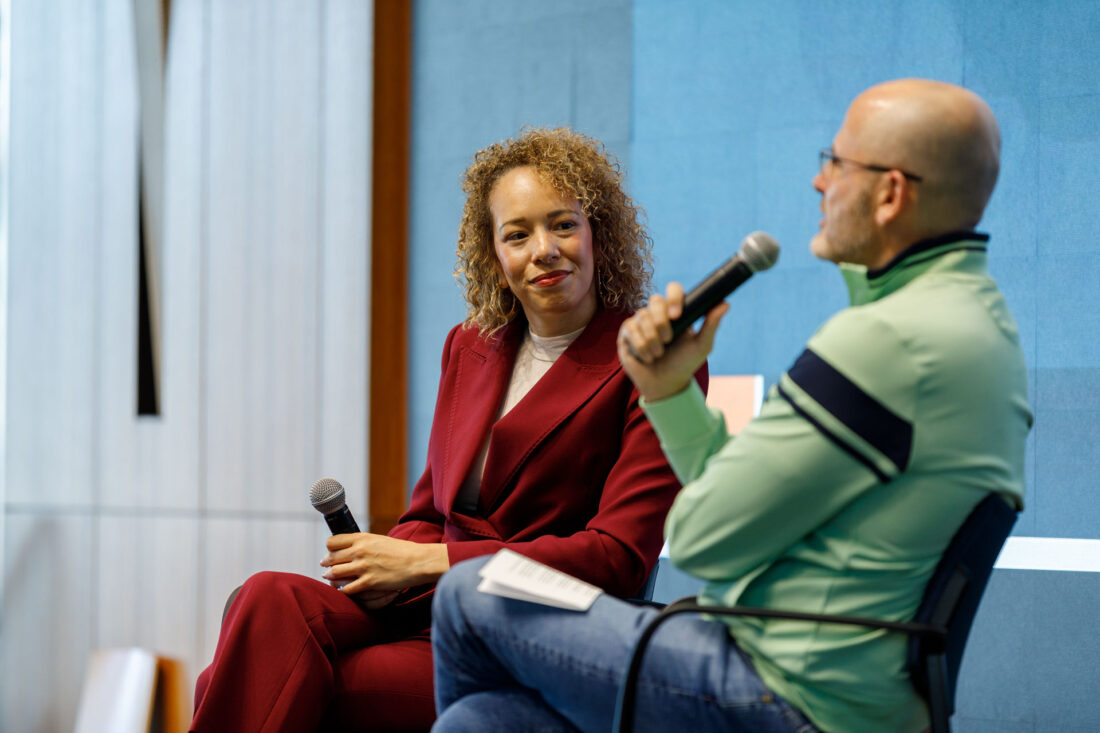Ahead of ClimateCAP Summit, Haas sustainability leaders provide roadmap for training climate leaders
This fall, Berkeley Haas welcomes a diverse and international group of nine new professors, including a record five women. The new faculty members include one full professor, two associate professors, and six new assistant professors, who are from Italy, Argentina, France, China, Canada, and California.
In addition to the new professors, seven new lecturers have joined the professional faculty to teach classes in various programs.
Associate Professor Matilde Bombardini, Business & Public Policy
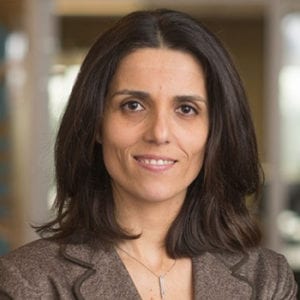
Assoc. Prof. Matilde Bombardini
Though Matilde Bombardini grew up in Imola, a city in Northern Italy, UC Berkeley has long had a special place in her life and career. It’s where she came as an undergraduate student on an exchange program in 1998-99.
“I took a graduate course in the Economics Department that opened the door for me to pursue a PhD at MIT (Massachusetts Institute of Technology). Professor David Romer was one of my letter writers for PhD admission,” she said. Bombardini earned her PhD from MIT in 2005.
Before coming to Berkeley, she was an associate professor at the University of British Columbia’s Vancouver School of Economics.
Bombardini is conducting ongoing research on the role of corporate charity as a channel for influencing regulation, and as a tool for political influence in general. She is also researching the role of politicians’ information in congressional voting on China’s Normal Trade Relationship with the U.S.
In her free time, Bombardini likes to ski, sail, hike, and enjoy the outdoors. “I am eager to explore the Tahoe area ski slopes, and the good weather in the Bay Area will make it easier to go back to sailing.” She is a beginner electric guitar player and likes all rock music.
Professor Francesco Trebbi, Business & Public Policy

Prof. Francesco Trebbi
As a child in Italy, Francesco Trebbi played basketball on a kids’ team with Kobe Bryant, whose father was a star in the city’s basketball team at the time. An athletic career did not prove as promising as his ventures in economics have been, however. “Our team lost even with Kobe on our side, so you can just imagine how bad of a basketball player I must be!” said Trebbi.
Instead, Trebbi attended Italy’s prestigious Bocconi University, earning a degree in political economy, before going on to receive his MA and PhD in economics from Harvard University.
Before joining Berkeley, he was the Canada Research Chair and professor of economics at the University of British Columbia Vancouver School of Economics, and an assistant professor of economics at the University of Chicago Booth School of Business.
Trebbi’s academic research focuses on political economy and applied economics. He has studied the design of political institutions, elections, political behavior, campaign finance, lobbying, and financial regulation. He has also worked on the political economy of development, ethnic politics, and conflict. His primary teaching interests are in political economy, applied economics, and applied econometrics. Currently, he is working on new empirical approaches to the study of behavior of government officials, voters, and special interest groups. He also maintains an active research program on the political economy of non-democratic and low-income countries.
Trebbi also has an artistic streak. “I have only one modest talent outside of economics: I paint. Non-figuratively. Many economists I know have been inflicted with one canvas or two, which I think they keep in their homes and offices out of affection,” he said.
Associate Professor Ricardo Perez-Truglia, Economic Analysis and Policy

Assoc. Prof. Ricardo Perez-Truglia
Ricardo Perez-Truglia grew up in the Ciudadela neighborhood near Buenos Aires, Argentina, moving to the U.S. for a PhD in economics from Harvard University. He joins Berkeley Haas from UCLA’s Anderson School of Management, where he was an assistant professor of economics for four years.
As a behavioral economist, one of Perez-Truglia’s main research interests is how social image and social comparisons shape economic behavior: What do others think of you? Are you rich? Smart? Hard-working? The desire to shape these opinions is a powerful driver of human behavior, he said.
His research often involves collaborating with private and public institutions, sometimes using large datasets to study the effects of policies, or conducting large-scale field experiments with their clients or employees. He studies a range of topics such as transparency, tax collection, and macroeconomic expectations. “My research is intended to inform firms and policy makers in the developed and developing world, leading to practical applications,” he said.
Perez-Truglia says he would be happy to talk to students about economics and social science research as well as two more personal topics: “I’m familiar with the challenges associated with being an immigrant and a first-generation college graduate, so I’m happy to discuss them with any of the Berkeley students who are facing the same or similar challenges.”
He’s also happy to talk about Latin America—and his favorite sport, fútbol or soccer. “I’d love to play soccer with the students if they want. I am a huge soccer fan—my favorite teams are River Plate (from Argentina), FC Barcelona (Spain) and obviously, I care the most about the Argentine national team.”
Assistant Professor Sydnee Caldwell, Economic Analysis & Policy
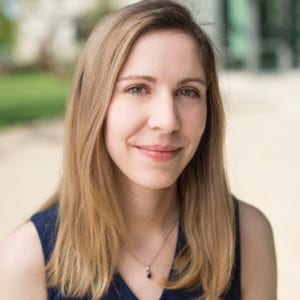
Asst. Prof. Sydnee Caldwell
Sydnee Caldwell, who grew up in Fallbrook, Calif., is coming “home” to Cal. She graduated from UC Berkeley with a double bachelor’s degree in applied mathematics and economics in 2008, before earning her PhD in economics from MIT in 2019. She joins Berkeley Haas after serving a year as a post-doctoral researcher at Microsoft Research New England.
Caldwell’s research focuses on topics of labor and personnel economics, and she is currently interested in how firms find and recruit new employees. She has also conducted research on the gender-wage gap, recently examining how it plays out in the gig economy. In a paper forthcoming in American Economic Journal: Applied Economics, she looks at the differences between taxis and ridesharing services like Lyft and Uber from the driver’s perspective.
She says students should feel free to come to her with any questions they have about economics or data science, regardless of whether they are in her data and decisions class. “I am always interested in how companies and people use data to make decisions,” she says.
Assistant Professor Solène Delecourt, Management of Organizations
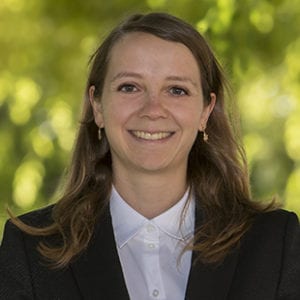
Asst. Prof. Solene Delecourt
Solène Delecourt hails from Lille, a city at the northern tip of France. She earned her PhD in organizational behavior at the Stanford Graduate School of Business.
Delecourt’s research centers on inequality in business performance. She is passionate about using rigorous social scientific theories and methods to delve deeply into this phenomenon, particularly among entrepreneurs in emerging economies. Her research agenda focuses on what drives variation in profits across firms, and how to reduce inequality in business performance among entrepreneurs in different market settings—including India, Uganda, and the U.S. In the three papers that made up her dissertation, Delecourt used field experiments to understand how business characteristics, client search behavior, and peer-to-peer advice among entrepreneurs affect business success.
Delecourt wants students to feel free to come to her for discussions. “I would love to hear about their projects, especially as they relate to issues of gender inequality,” she said.
In her free time, she enjoys swimming and is excited for the numerous outdoor pools on campus. She also loves good bread and pastries and cannot wait to try out Fournée Bakery.
Assistant Professor Douglas Guilbeault, Management of Organizations

Asst. Prof. Douglas Guilbeault
Douglas Guilbeault is from Tecumseh, a small town in Southwestern Ontario, Canada. He received his PhD in 2020 from the Annenberg School for Communication at University of Pennsylvania.
Guilbeault studies how people build shared concepts as they communicate in daily life, specifically within social networks and organizations. “Big problems on my list to tackle are: bias reduction in crowdsourcing, cross-cultural concept translation, equitable content moderation over social media, and enhancing scientific discovery,” he said.
Guilbeault is developing a computational theory of how categories emerge, grow, and evolve in social systems, as well as how categories shape social systems themselves.
Guilbeault looks forward to meeting his new colleagues. “I am most excited by the dynamic network of colleagues that I will get to exchange ideas with and learn from,” he said. “The Management of Organizations group at Haas is absolutely distinct in its integration of both macro and micro perspectives on organizations, and my work explores this interface.”
When he’s not conducting research or teaching, Guilbeault makes music and writes software that produces digital art. He also loves running, biking, hiking, and seeing live music.
Assistant Professor Xi Wu, Accounting
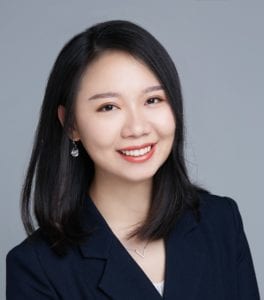
Asst. Prof. Xi Wu
Xi Wu is originally from Beijing, China. She received her PhD in accounting from New York University’s Stern School of Business after studying mathematics and economics as an undergrad at Cornell University.
Wu’s research focuses on the intersection of securities regulation, corporate governance, and valuation. Her current research studies how regulations affect firms, how managers and creditors use information to address agency issues, and how to use newly-available data to value firms and cryptocurrencies. Her recent work shows that more heavily regulated companies fare significantly better during extreme economic downturns—including the coronavirus pandemic.
Since she is currently studying the valuation of cryptocurrencies and the market of initial coin offerings (ICOs), Wu says that being close to both the San Francisco Bay Area and the Silicon Valley is of huge value to her, and she is excited about the potential of connecting fintech research to the practical world.
Wu enjoys hiking and skiing in her free time.
Assistant Professor Luyi Yang, Operations & Information Technology Management
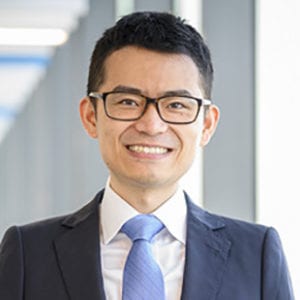 Luyi Yang, a native of Shanghai, China, joins Haas from Johns Hopkins University, where he was an assistant professor at the Carey Business School for the past three years. He received his PhD from the University of Chicago Booth School of Management in 2017.
Luyi Yang, a native of Shanghai, China, joins Haas from Johns Hopkins University, where he was an assistant professor at the Carey Business School for the past three years. He received his PhD from the University of Chicago Booth School of Management in 2017.
Yang’s work is focused on developing new theories for understanding emerging business models and policy initiatives in service operations. On the business front, he has studied innovative mechanisms for managing queues—which are often a key feature of service systems—such as line-sitting, mobile ordering, and referral priority programs. On the policy front, he has studied the welfare implications of expanding patient choice in elective surgeries, as well as the pricing and environmental implications of the right-to-repair legislation, which gives consumers the ability to repair and modify their own consumer electronic devices.
Yang is excited to experience the innovative culture of Haas. He said students should come talk to him about their startup ideas and new business models. “Over the years I have engaged many startups in my research and teaching. If you have an innovative idea to start a new business, we should talk!” Yang said. In his free time, he likes travelling and hiking.Assistant Professor Biwen Zhang, Accounting
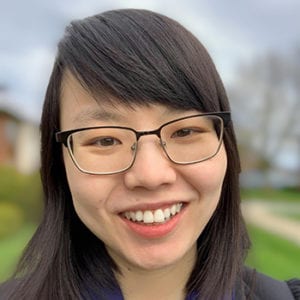
Asst. Prof. Biwen Zhang
Biwen Zhang is from Nanchang, the capital and largest city of Jiangxi Province, China. She completed her PhD in accounting in 2020 from Simon Business School at the University of Rochester.
Her main research interests are in the areas of financial intermediaries and corporate governance. Specifically, her current research revolves around the economic implications of conflicts of interest faced by capital market participants.
In her free time, Zhang likes to play table tennis and badminton.
New Professional Faculty
New lecturers this fall include Ahmed Badruzzaman, Deborah Krackeler, Don Hanna, and Sachita Saxena, who will each teach a course in the Undergraduate Program; James Zuberi, who will teach a course in the Executive MBA Program; and Temina Madon, who will teach in the Full-time MBA Program. Sasha Radovich will join in the spring to teach a class in the Undergraduate Program.
Posted in:
Topics:



